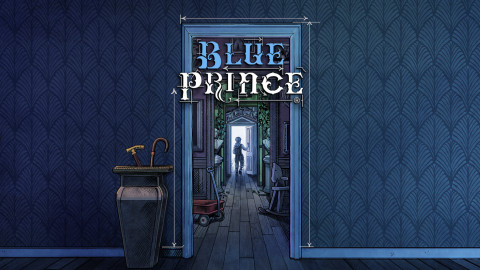
How Video Gaming Can Impact Students` Grades
Video games have had a bad reputation for many years. It’s been an evil stereotype as well as the one about the harm of the opportunity to buy essay online. Much like the televisions, they're played on, games have been considered a distraction and a menace to good, clean learning since Pong was bopping across the screen in the 1970s.
With today’s games being far more immersive and, dare we say it, addictive than those of the last century, many students, parents, educators, and researchers are curious as to what harm and what good they bring to learning.
Though essay writers are undoubtedly using their brains to conjure introductions, theses, syntheses, and conclusions, what about gamers? Are they not solving problems, thinking quickly, and planning properly?
Not all games are created equal
Some video games in the modern era are highly sophisticated affairs; both in their content and their design. No Man’s Sky for instance is a survival game based on procedurally generated code, which gives the players over 18 quintillion planets to explore, Eve Online has a massive, complex economy, while Grand Theft Auto and Red Dead Redemption have large open worlds filled with cultural and social humor/criticism.
Playing these games is fun, especially when you can redirect your homework to essay writers service and keep playing. There’s no denying that, and it’s foolish to consider gamers as partaking in something which only buffs their intelligence or critical thinking stats. However, the points behind and integral to these video games are advanced, require thought to understand, and can shape our impression of the world as much as any textbook or lesson.
Without educational input and engagement, video games will remain on the shelf marked ‘fun’, though they’re allies to educational providers and professional college essay writers.
While we can create a hierarchy of games depending on their supposed ‘good’ and ‘bad’ qualities, there needs to be some empirical evidence backing this up, or it just sounds like someone trying to make an excuse to play a few more hours; for the sake of ‘learning.’
What about the data?
Hypothesizing about the qualities of video games is all good, but what studies are there and what conclusions have they reached? The widely taken position is that video games are intellectually similar to laying on the sofa doing nothing.
For years, studies on video games focus on negative effects. Violence, aggression, addiction, depression, and other maladaptive behaviors. While these effects should be studied, as this is good science, looking at the other side is just as important.
A meta-study in 2013 demonstrated that games strengthen and maintain a series of cognition-related skills; spatial awareness and navigation, reasoning, memory recall, and perceiving things.
To the chagrin of anti-gamers, the effects were strongly correlated with first-person shooters; those violent beasts improved the participant’s ability to conceive and think about objects in 3D just as much as educational courses specifically designed to build these skills.
The type of thinking exhibited was crucially not found in other games, such as puzzle-solving or role-playing games (RPGs).
Yet, another day brings another study, and strategic video games this time were found to improve problem-solving skills and actual school grades in the next academic year. When looking for a cheap essay writer trick to fill some words, are video games offering students a solution or avenue to practice in? A long-term study showed that creativity was enhanced in children who played any form of games, violent, non-violent, racing, or otherwise. This was not found when children had access to other kinds of technology, such as a PC or a smartphone.
Do mood improvements lead to cognition improvements?
Aside from the complex endeavors that require years of development and hundreds of hours of gameplay, there are mobile games. Take Angry Birds, the original smartphone game phenomenon. A study found that games like these can improve the mood of the player. By being more relaxed and less anxious, we know that we think better. Does this then correlate to an improvement in overall health and grades?
One part of the brain is called Broca’s Area. This is your brain ‘on writing’, it’s found in the left hemisphere of the frontal lobe and it’s responsible for language. Broca’s Area is what allows us to turn a memory - those crazy non-verbal events - into a stream of written text.
From a neuroscience perspective, areas of the brain can change density and shape, and they can also be damaged. Researchers then want to know if a video game - either by its absence or presence - can affect this area. Perhaps we should be studying what happens when children avoid games, as this is a common trope amongst keen parents.
Social boons
Video games have a stereotypical person behind the controller, usually a man, they’re socially withdrawn and have little contact with the real world. Essentially, this trope is gone. Yes, it still exists (for instance, hikikomori in Japan), but that’s no longer the whole story.
Video games are played by people of all ages, genders, and demographics. Again, there is a tendency for reactionary headlines to come out of the gaming world, Gamergate, and so on, but by and large, the majority of gamers are playing with friends, having a good time, and making ‘real’ virtual connections.
The positives of social interaction are again linked to cognition and again we make the link in this article that that means good grades. In virtual worlds, young people are given more responsibilities than they may be allowed in the real world. For instance, they’re unlikely to lead a platoon of soldiers on a raid or negotiate with a rival tribe. In games students build these skills, play is vital to good health and good health is vital to academic attainment.
Moderation is surely the key
Despite the seemingly untapped positives video games have to offer, there is a need for moderation. As with anything fun in life, we can get hooked, sometimes without knowing. As more video games introduce forms of gambling, students should be wary that they’re not simply giving away time and money to sleazy developers.
In looking at the best way to manage video games and studying, treating them as a reward and not as an escape seems to be the way to go.
-
 Guest Reporter
Guest Reporter
Sort by:
Comments :0





